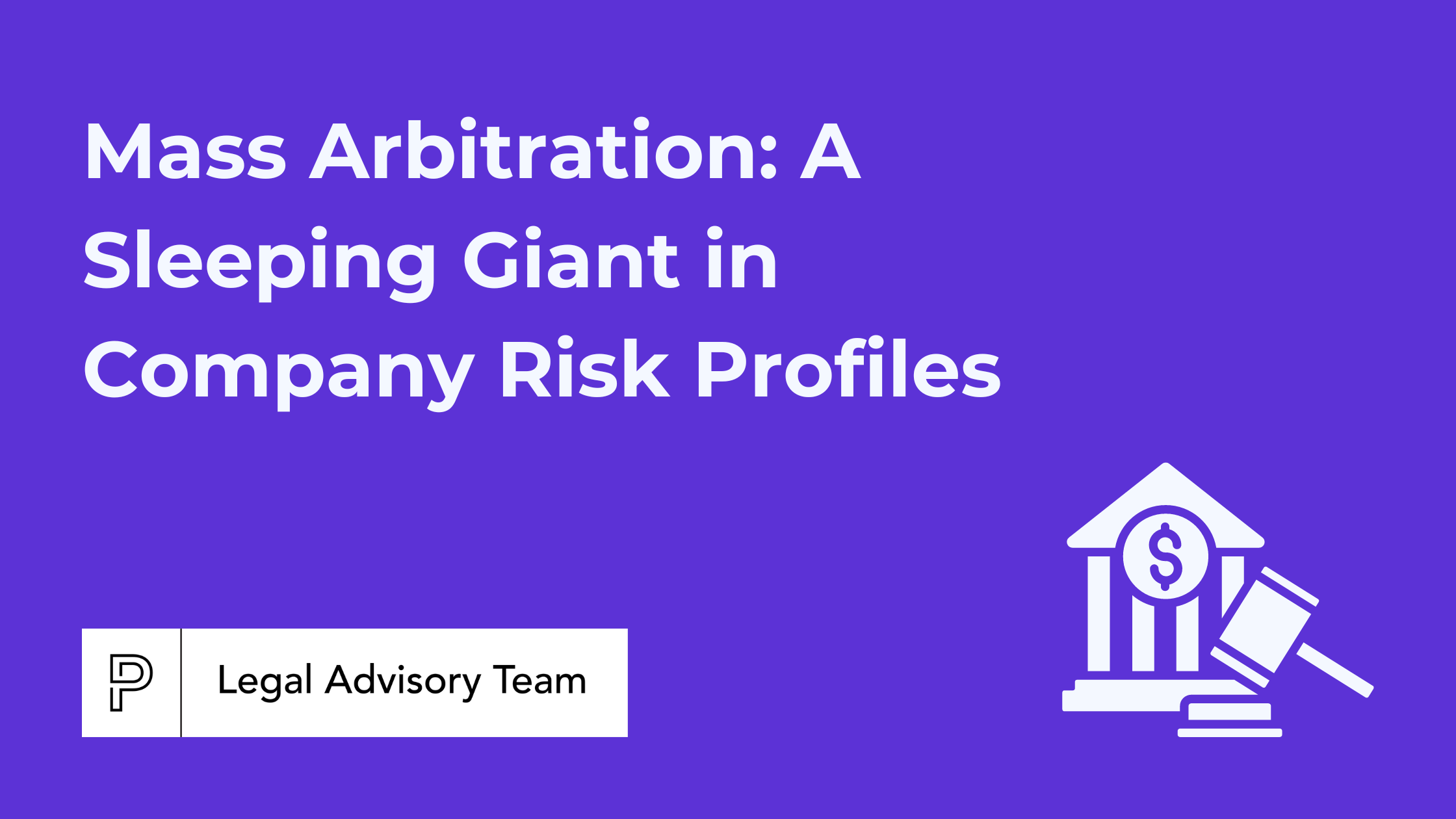
It's every litigation head's worst nightmare. A niche firm or legal services startup gathers thousands of consumer complainants under a mandatory arbitration clause with pre-agreed arbitration fees.
Now you're facing millions in arbitration fees.
This is a scenario that has become a reality for large companies such as Uber and Intuit in recent years. And it’s a risk that your company should be prepared for.
Over 80% of Fortune 100 companies have mandatory arbitration clauses in their user agreements. You might even be one of them.
The Risk of Mass Arbitration for Large Companies
A review by a law professor in 2019 found that 81 of the 100 companies in the Fortune 100 have arbitration clause in their consumer agreements. Within those agreements, the contracts often state that the company will pay a predetermined rate to cover the arbitration process — should a customer file a grievance.
Individually, those costs are relatively small; each matter typically costs a company a few thousand dollars. That’s nowhere near the cost a company could face under a class action lawsuit, which is what many arbitration clauses are designed to avoid.
Arbitration clauses — and their associated fees — have not gone unnoticed, however. For each filing, the firm or company representing the customer can invoice for administrative fees
Law firms such as Keller Lenkner and startups like FairShake have taken advantage of these clauses by gathering thousands of customers and filing for arbitration for all of them, all at once, then invoicing for millions in fees, essentially weaponizing a company’s arbitration clause.
In one example, the law firm Consovoy McCarthy gathered and filed over 31,000 arbitrations against Uber at a cost of $3,400 per case ($500 filing fee; $1,400 case management fee; $1,500 arbitrator fee).
Uber challenged the $91 Million fee from the American Arbitration Association (AAA) but ultimately lost in the NY Appellate Court.
In short, not only is there a risk of completely exhausting your in-house counsel capacity, but there is also a direct monetary threat from the sheer cost of arbitration fees.
What You Can Do to Be Prepared
Every arbitration clause is a little bit different, and we certainly can’t give legal advice about your contract language.
We do want you to be prepared with a plan for how to respond — if a mass arbitration gets filed against you.
Here are three things we see companies are doing to be prepared should a mass arbitration event happen to them:
1. Complete an internal risk assessment
Step one is to review your customer agreements and anywhere else where you might have an arbitration clause.
- Do you have arbitration clauses or informal resolution options in any of your contracts or terms of service?
- If so, how are costs allocated in those terms?
It may be that the way you’ve set up your arbitration terms means you’re at less or more risk than other companies like yours.
2. Complete an external market assessment
A second step is an external assessment, looking at companies that might be similar to yours who might have faced mass arbitration already.
- What has been happening in your market?
- How did the cases go?
- What costs and fees did other companies like yours have to pay as a result of mass arbitration?
Look also at how the companies managed their response. Did they use internal lawyers? Did they engage with outside counsel? That will give you insights into how you might respond if something similar happens to you.
3. Find a law firm with expertise in mass arbitration before an arbitration event happens (not after)
Finally, decide ahead of time how you’ll respond and what resources you’ll use.
Larger companies with bigger departments might be able to handle this internally. But there is also something to be said for working with firms as strategic advisors, especially firms who have experience with mass arbitration that you might lack with your internal team.
Firms who’ve managed these matters for other clients will better understand the system and might be able to come to a better resolution than you could without the same experience.
For those of you using PERSUIT, running a competitive RFP is a great way to assess which firms have the right experience to help you. It’s also an opportunity to evaluate the approaches and potential costs you might face if a mass arbitration filing comes your way.
Understand the Risk
You never know when a mass arbitration filing will hit. The companies and firms gathering customers to file a mass arbitration won’t make their move until they have enough people to (they believe) force your company into some kind of settlement.
Now is the time to leverage your firm relationships to plan strategically for the risk of a mass arbitration filing.
Note: For more on how to work strategically with your law firms, sign up for our exclusive webinar: The Power of Firm Panels: How to Optimize Firm Partnerships for 2024.
